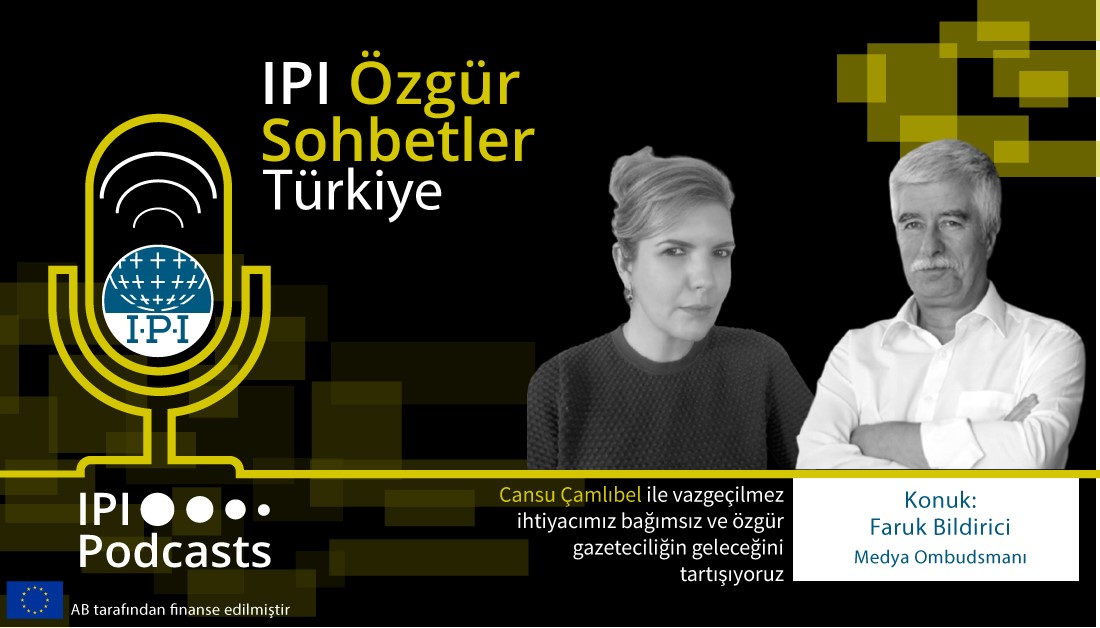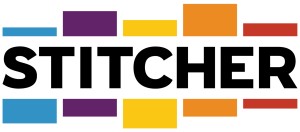Also available on:
The 19th episode of IPI’s podcast series IPI Freedom Dialogues: Turkey is out now!
In the 19th episode of the IPI Freedom Dialogues, journalist Cansu Çamlıbel and her guest Faruk Bildirici, a prominent journalist and media ombudsman, take up recent discussions on the foreign funding of independent media organizations in Turkey. Bildirici pointed to this debate as part of the government’s efforts to demonize and polarize Turkey’s remaining free and critical media outlets.
Previous episodes of IPI’s Freedom Dialogues: Turkey podcasts are available here.
According to Bildirici, these discussions – which he noted were, ironically, initiated by a few critical news outlets such as Oda TV – are intended to put pressure on strong and independent media organizations such as Medyascope rather than to sincerely discuss their sources of funding. He emphasized that Medyascope is portrayed as if it were the sole media outlet receiving funding from international sources, when in fact, he said, Medyascope has been operating in full transparency on its finances and resources since its establishment and it was never a secret. Bildirici said that it was precisely pro-government media outlets financed by the government itself that operate in a highly non-transparent manner.
Despite the fact that there is political control over a large portion of the Turkish media, Bildirici said that the truth has always found its way out and the independent and critical media have grown much stronger than expected in recent years. He underlined that in order to prevent this growth, the government has taken many different actions, including granting increased powers to the Radio and Television Supreme Council (RTÜK) to stifle media. However, as RTÜK’s control over media has failed to silence critical voices, the issue of foreign funding was now being exploited to suppress independent and critical media. Bildirici said that he was saddened by the fact that some journalists working for critical outlets have been using the same rhetoric to target and polarize independent journalists that receive international funding.
When Çamlıbel mentioned the most recent admonitory statement by RTÜK on the media funding discussions, Bildirici said that RTÜK has become a political institution that solely punishes independent and critical media channels. However, it went beyond its scope of authority and even told or warned journalists on “how to do journalism”, explicitly positioning itself as the protector of the pro-government media, Bildirici added.
Bildirici remarked that he finds no harm in receiving funding for media organizations as long as the two principles of transparency and editorial independence are preserved.
Comparing following pro-government media outlets to listening to monophonic choirs, Bildirici noted that independent and critical media outlets, whether internationally financed or not, carry out the real and extensive journalistic activity.
Topics covered in the podcast include:
- Funding discussions and demonizing critical media through the example of Medyascope
- Increasing impact of independent media and their ability to set the agenda
- Transparency and editorial independence as two principles of foreign funding
- Lack of understanding of philanthropy in Turkey
- The government’s efforts to control social media have failed
Highlights from the episode (Faruk Bildirici):
- “Despite having a great media power in its hands, the government can no longer successfully use it to push its own agenda or suppress the facts.”
- “Unlike independent and critical media outlets in Turkey, we see that the pro-government media has no editorial independence at all. It appears that [pro-government media outlets] build their editorial activities entirely on the government rhetoric, thanks to both political and organic, and financial links with the government.”
- “No matter how much the government suppresses [the independent media], at every attempt it generated a counterreaction, and thanks to the digital revolution, the independent and critical media became very powerful.”









